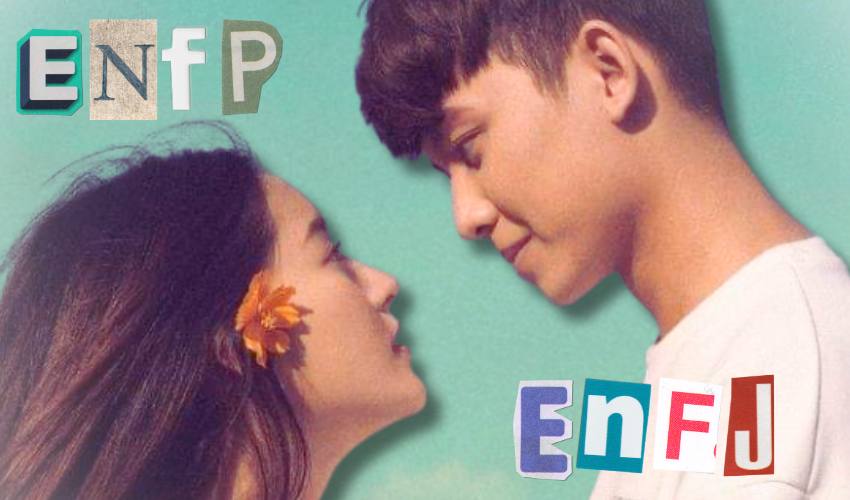No matter what MBTI type you are, competition is a fact of life. It’s a source of entertainment, and a means of survival. When it comes to the latter however, competition can bring out the worst in us. Fortunately we can achieve more through collaboration and cooperation. Still, even within a civilized society that values merit and rewards people according to their effort and ability, competition has its place as a means of sorting out who’s the best and most worthy. Here is an assessment of how competitive each MBTI type is.
INFP
INFPs are not super competitive but can be when jealousy and/or insecurity is involved. Threats to their happiness can stir up the competitive spirit in INFPs and maybe activate their Te, making them more assertive and pushy. Most of the time, INFPs frolic in the dreamscape of their imagination where the material world has less significance. INFPs are likely to be less competitive about most things except where their feelings and sense of happiness is at stake such as with romantic rivals or a sibling receiving more attention and affection than them. INFPs may sometimes compete to impress the people they love.
INFJ
INFJs are generally not very competitive because they prefer to work things out like civilized adults. Collaborating and working together to achieve a win-win outcome is more preferable to an INFJ’s sensibilities. INFJs tend to be focused on their own path and are less compelled to prove anything to others through competitive means. INFJs being the idealists they are, are less likely to feel the scarcity mindset that can so often drive cutthroat competitive people.
ENFP
ENFPs are generally not very competitive per se, because they are mostly focused on themselves and their journey. ENFPs are less concerned about demonstrating dominance or superiority over others through competition and more interested in competing with themselves and living a better life. ENFPs are likely to take competition less seriously and more likely to use it as a friendly activity. In some cases, ENFPs can use it as a motivator for upping their game and being their best selves.
ENFJ
ENFJs promote a spirit of equanimity and cooperation among others and so for them, competition can often be seen as something that undermines that. ENFJs themselves are not especially competitive but they may still appreciate the spectacle of sports events and how it brings people together to show enthusiastic support for their team. ENFJs care way more about being valued and liked by others for the good they do than racking up victories over them. If anything, ENFJs may be highly competitive when it comes to popularity contests.
INTP
INTPs alternate between being philosophically indifferent and obnoxiously competitive. INTPs tend to think that, if they really wanted to, they could master almost anything and do so through independent means. When they lose at something, INTPs either won’t care or become hell-bent on playing rematch after rematch until they figure out how to win. They can become obsessed with learning everything there is to know so they have sufficient depth of understanding. For them, losing can be treated much like any other problem for which they become motivated to devise an ingenious solution or theory to overcome.
INTJ
INTJs can be ultra-competitive strategists for whom losing can feel like a heavy blow to their ego. INTJs can be covertly competitive, and not opposed to digging up dirt and doing extensive research to gain whatever advantage they can against their opponents. They are good at learning and mastering effective tactics but may be more challenged in physical competitions. INTJs may be especially good at waging psychological warfare. With their strong poker-faces and subtle mind games, INTJs can weaken their opponents confidence and focus.
ENTP
ENTPs can be very competitive in a Machiavellian way. On the surface, they can appear as though they don’t take anything seriously enough to be genuinely competitive. ENTPs can get easily drawn into a frivolous game of one-upmanship to show who’s the cleverest of them all. They are most likely to be competitive in a contest of wits, trying to go for the bigger laugh or snappier retort.
ENTJ
ENTJs are bound to be highly competitive and driven to push their limits to do their best and be the best. ENTJs are highly energized and stimulated by competition and often use it as a motivational tool to bring out the very best in both themselves and their team. Having mountains to climb and dragons to slay excites the ENTJ. They derive a lot of meaning and gratification from the triumphs and achievements they make that set them apart from most people.
ISTJ
ISTJs are typically uncompetitive unless their standing or reputation is at stake. ISTJs are less driven by competition and more driven by a sense of duty and pride in the work they do. ISTJs are busy running their own race but can appreciate competition as a means of sharpening their skills and improving their performance.
ESFJ
ESFJs aren’t really keen on competition because they don’t like the feeling of inferiority that can come with being a loser. They are more inclined to promote the idea that everyone’s a “winner”. Furthermore, they prefer to work together as a team rather than rely on themselves. For ESFJ, competition is only for fun and enjoyment and not something to be taken too seriously. What’s important is that everyone has a good time.
ISFJ
ISFJs are not very competitive. The competitive spirit in them is mostly dormant and is not likely to be awoken by playing sports and other games. They simply enjoy such activities for what they are, often as quality time spent with the people they care about. The competitive side of ISFJ is more likely to emerge in the form of jealousy when they perceive someone as standing in between them and something or someone they desire.
ESTJ
ESTJs enjoy competition as a test of their abilities and can be competitive in an almost cutthroat way. Because of their inferior, Fi, ESTJs may have little qualms with crushing their competition. ESTJs tend to be most competitive in their careers and matters of consequence. They may also feel strongly competitive about their favorite sports teams and the various organizations and communities to which they belong, including their country.
ESTP
ESTPs enjoy competition and the opportunity to prove how good they are. ESTPs can be very competitive and if someone gets the best of them, it is not something they will take lightly. Although they can show good sportsmanship, and respect for their competition, ESTPs are inclined to come back with a vengeance to get that “W” because losing can eat away at their self esteem and ego.
ISTP
ISTPs are bound to be very competitive, even if secretly so. ISTPs can work excessively hard to develop their talents and crafts with or without competition. Generally, ISTPs don’t like to brag about their ability, but instead let their actions do the talking. ISTPs can be sore losers because for them, much of their self image and self worth is built on pride in their skills. Strong competition or getting bested by others can drive the ISTP to perfectionist extremes in order to be the best or distinguish themselves in their own right.
ESFP
ESFPs can be very competitive because as performers, they relish the spotlight. ESFPs are game to step up and rise to the occasion and do whatever it takes in order to claim what they are after. ESFPs tend to have a strong sense of themselves and what they’re worth and so they are not inclined to sit passively while someone comes along trying to steal their thunder or get in the way of their dreams.
ISFP
ISFPs can be pretty competitive but tend to be more covert about it. Although they tend to be very easygoing, they are not as dispassionate and harmless as they may appear. An ISFP may be competing with you without you even knowing it. They can get jealous or insecure about little things and try to one-up you in indirect or unexpected ways. Most of the time, ISFP are only competing with themselves and tend to avoid comparing themselves to others.
related posts:
- The First Impression Others Have of You Based on MBTI Type
- The MBTI Types As Iconic Space Aliens
- How Imaginative You Are Based on MBTI Type
- The 10 Commandments of the MBTI Types
- Here is the Story Arc for Each MBTI Type
- The Freudian Complex That Best Describes Each MBTI Type
- The Most Interesting Qualities of Each Myers Briggs Type
- ISFJ and ISTJ in love: 5 Essential Dynamics of their Relationship - February 24, 2024
- ENTP and ENTJ in love: 6 Critical Dynamics of Their Relationship. - February 18, 2024
- ESTJ and ESFJ in love: 4 Key Aspects of their Relationship. - February 12, 2024





